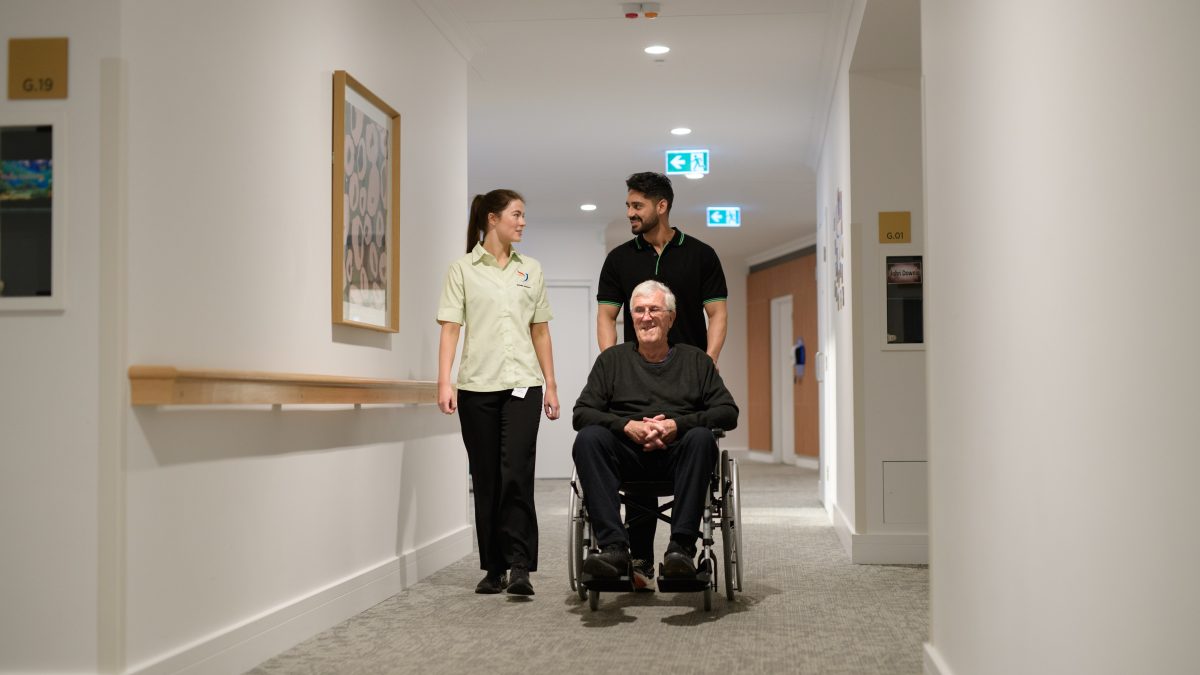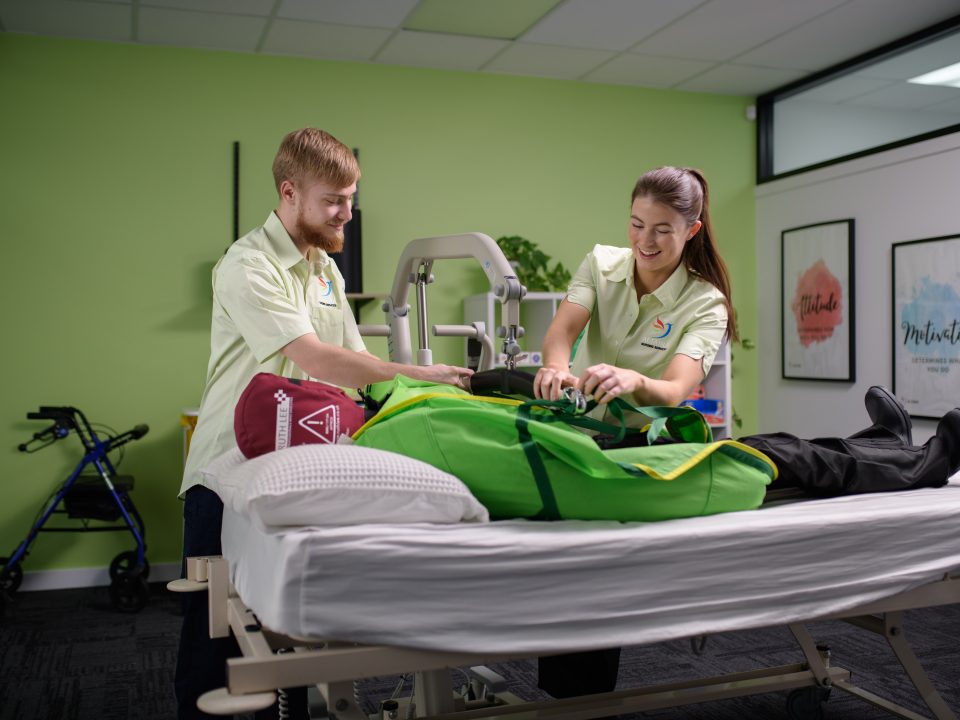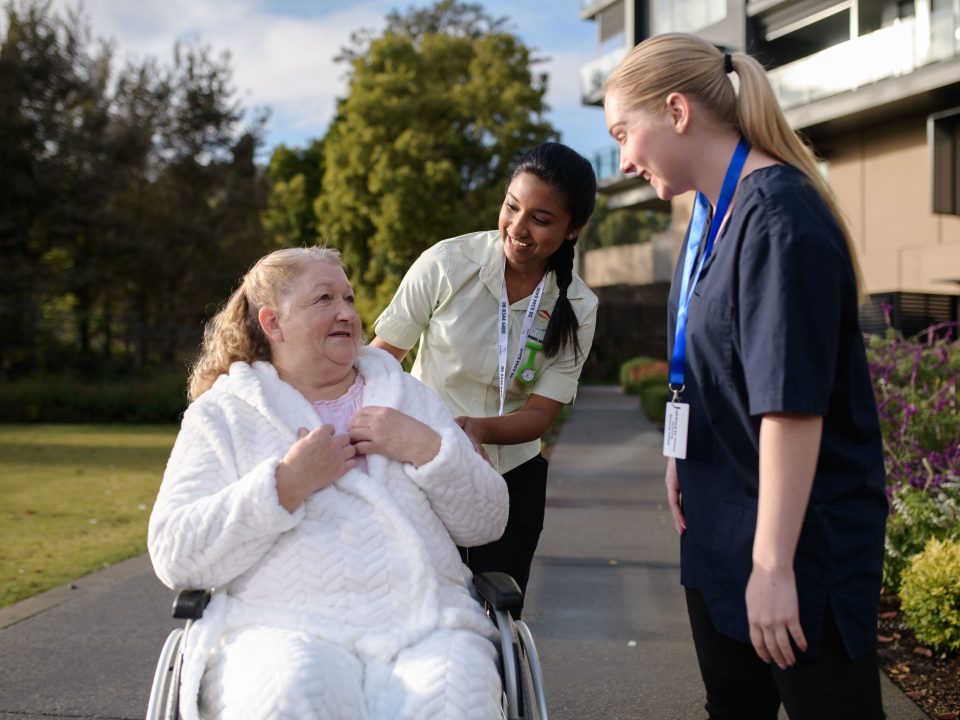
How to Build Confidence as a New Nurse in Aged Care
January 24, 2025
Innovation Transforming Aged Care – Our Involvement
February 14, 2025Caring for the Elderly: Essential Skills Every Aged Care Nurse Needs

Aged care nursing is a rewarding yet demanding field that requires a unique variety of skills. As the aging population grows, so does the need for compassionate and skilled nurses who can provide high-quality care to elderly individuals. Whether you’re a new graduate or transitioning into aged care, mastering these 8 essential skills will help you thrive in this profession.
Compassion and Empathy
Elderly residents often face challenges such as chronic illnesses, mobility limitations, and cognitive decline. Being able to demonstrate compassion and empathy allows nurses to build trust, reduce anxiety, and provide emotional support. A simple smile, a listening ear, and a reassuring presence can make a significant difference in a residents day.
Communication and Listening
Clear communication is critical when working with elderly residents, as well as their families, and other health professionals. Many older adults experience hearing loss or cognitive impairments, requiring nurses to speak slowly, clearly, and patiently.
Patience and Adaptability
Caring for elderly residents sometimes requires more time and patience than other areas of nursing. Elderly adults may move slower, struggle to express themselves, or require repeated explanations. Being patient and adaptable to their pace and needs ensures a respectful and comfortable care experience.
Medication Management
Elderly residents commonly have multiple prescriptions, increasing the risk of medication errors. Nurses must be confident in medication administration, monitoring side effects, and educating residents and families about proper usage. Understanding drug interactions and age-related physiological changes is essential for safe medication management.
Recognising and Managing Common Health Conditions
Aged care nurses should strive to be knowledgeable about prevalent conditions in older adults, such as dementia, arthritis, cardiovascular diseases, and osteoporosis. Early detection of symptoms and proactive management can improve resident outcomes and quality of life.
Personal Care and Hygiene Assistance
Many elderly individuals require help with activities of basic daily living such as bathing, dressing, and toileting. Nurses must provide this assistance with dignity and respect, ensuring the resident feels comfortable and valued.
Emotional and Psychological Support
Growing older and being less independent can often bring feelings of loneliness, depression, and anxiety. Nurses play a crucial role in promoting mental well-being by encouraging social engagement, validating emotions, and connecting residents with support services or activities that enhance their quality of life.
End-of-Life Care and Support
Providing comfort and dignity in a residents final stages of life is an essential skill for aged care nurses. Understanding palliative care principles, managing pain and symptoms, and offering emotional support to both residents and families helps ensure a peaceful transition.
Aged care nursing requires a combination of technical skills and deep compassion. By developing these essential skills, new nurses can make a meaningful impact on the lives of elderly residents, providing them with the care, dignity, and respect they deserve. As you begin your journey in aged care, remember that your kindness, patience, and dedication will shape the experiences of those in your care.
Are you ready to make a difference in aged care? Explore more educational resources here https://www.altaira.com.au/news/ or take a look at what joining Altaira as an aged care nurse would look like! https://www.altaira.com.au/employment/graduate-nursing-program/










